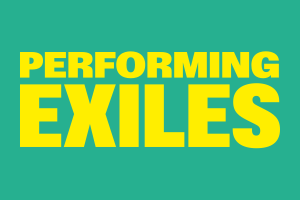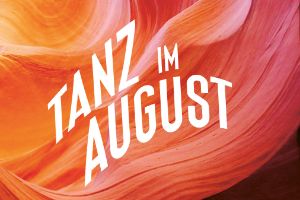
Junge Deutsche Philharmonie © Achim Reissner
Junge Deutsche Philharmonie
It was in 1974 that a group of forward-thinking musicians, fresh out of Germany’s Federal Youth Orchestra, founded a successor: the Junge Deutsche Philharmonie. Today, Junge Deutsche Philharmonie graduates pepper the ranks of leading orchestras, and many hold conservatoire-level professorships. The Junge Deutsche Philharmonie has also given birth to several well-known ensembles, such as the Deutsche Kammerphilharmonie Bremen, Ensemble Modern, Ensemble Resonanz and the Freiburg Baroque Orchestra, making a lasting impact on cultural life.
To join the Junge Deutsche Philharmonie, the best students from German-speaking conservatoires have to pass a competitive audition. If accepted, they undergo a training founded on the great symphonic repertoire, plus contemporary music and historically informed practice, moulding them into an ensemble with the very highest artistic standards. Aged 18 to 28, members gather several times a year for intensive rehearsal periods, followed by international tours. Yet the Junge Deutsche Philharmonie is about more than learning to play in an orchestra: it’s a crucial stepping stone from studying at a conservatoire to being a professional musician. The Junge Deutsche Philharmonie’s democratic constitution offers members the chance to gain experience of serving on committees or joining the orchestra’s board, as well as planning programmes, taking workshops to broaden their horizons and doing community outreach work.
Ever since 2008 the Junge Deutsche Philharmonie has been making waves with its biennal FREISPIEL, a mix of ground-breaking, partly experimental performance formats. It enjoys special partnerships with the Berlin Philharmonic and the Bamberg Symphony Orchestra, which has been mentoring the Junge Deutsche Philharmonie since 2015, its top players coaching their young counterparts through an annual rehearsal and concert in Bamberg. And every year the Berlin Philharmonic invites the Junge Deutsche Philharmonie to perform in the Berliner Philharmonie, streaming the concerts live via its Digital Concert Hall.
The Junge Deutsche Philharmonie regularly works alongside internationally renowned artists. Since 2014, its Principal Conductor and Artistic Advisor has been Jonathan Nott, who was appointed after the success of their first collaboration in the spring of 2013, performing music by Mahler. He follows Lothar Zagrosek, Principal Guest Conductor and Artistic Advisor from 1995 to 2014. Other recent guest conductors have included David Afkham, George Benjamin, Ivor Bolton, Sylvain Cambreling, Tung-Chieh Chuang, Dennis Russell Davies, Susanna Mälkki, Bruno Mantovani, Ingo Metzmacher, Sir Neville Marriner, Sir Roger Norrington, Andrés Orozco-Estrada, Jukka-Pekka Saraste and Jörg Widmann. And Junge Deutsche Philharmonie members have grown as artists by working with soloists such as Tzimon Barto, Renaud Capuçon, Martin Fröst, Sol Gabetta, Martin Helmchen, Sergey Khachatryan, Nikolai Lugansky, Truls Mørk, Sergei Nakariakov, Christiane Oelze, Julian Steckel, Antoine Tamestit, Christian Tetzlaff, Alexandre Tharaud, Carolin Widmann and Jörg Widmann, and with composers including Beat Furrer, Heiner Goebbels, Enno Poppe, Wolfgang Rihm, José María Sánchez-Verdú, Jörg Widmann and Hans Zender.
As of July 2019
